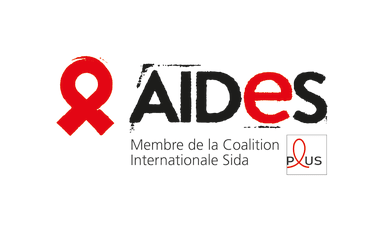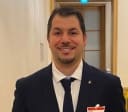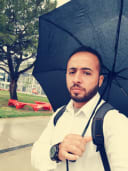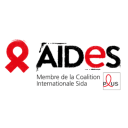Protect yourself from HIV
With AIDES association
 Proposed by AIDES Updated on il y a 7 mois
Proposed by AIDES Updated on il y a 7 moisThere are many ways to protect yourself and others from HIV infection .
Depending on the timing, sexual practices, and frequency, one tool may be preferred or more suitable than another. It's important to be aware of all the available solutions!
Why is it interesting?
How to do it?
Lieu d'accueil
9 Place Émile Zola, 21000 Dijon, France
06 21 75 38 89
dijon@aides.org
2 Avenue Fontaine Argent, 25000 Besançon, France
03 81 81 80 00
delegation25@aides.org
19a Rue Engel Dollfus, 68200 Mulhouse, France
03 89 45 54 46
delegation68@aides.org
235 Avenue de Colmar, 67000 Strasbourg, France
03 88 75 73 63
delegation67@aides.org
3 rue des Carmes 54000 Nancy, France
03 83 35 32 32
delegation54@aides.org
37 Rue du Barbâtre, 51100 Reims, France
03 26 09 38 38
delegation51@aides.org
2 Rue du Bleu Mouton, 59800 Lille, France
03 28 52 05 10
lille@aides.org
7 Rue des Hautes Cornes, 80000 Amiens, France
03 22 91 62 69
amiens@aides.org
23 Rue du Fardeau, 76000 Rouen, France
02 35 07 56 56
rouen@aides.org
43 Rue Saint-Hélier, 35000 Rennes, France
06 34 28 71 67
rennes@aides.org
63 Rue du Maréchal Foch, 56100 Lorient, France
06 16 01 40 29
lorient@aides.org
42 Rue Noémie Hamard, 53000 Laval, France
02 43 49 24 43
laval@aides.org
11 Square Winston Churchill, 49000 Angers, France
02 41 88 76 00
angers@aides.org
20 Rue Baron, 44000 Nantes, France
02 40 47 99 56
aides44@aides.org
61 Rue de la République, 28300 Mainvilliers, France
02 37 33 07 4806 29 72 34 63 / 06 34 18 48 76
secretariat.centre@aides.org
166 Rue la Barrière Saint-Marc, 45000 Orléans, France
02 38 53 30 31
delegation45@aides.org
310 Rue d'Entraigues, 37000 Tours, France
02 47 38 43 18
9 Avenue Saint-Jean d'Angély, 79000 Niort, France
05 49 17 03 53
deux-sevres@aides.org
19 Rue Buffeterie, 17000 La Rochelle, France
05 46 31 55 36
charente-maritime@aides.org
12 Rue des Boissières, 16000 Angoulême, France
05 45 92 86 77
charente@aides.org
55 Rue Jules Noriac, 87000 Limoges, France
05 57 87 77 78
aides-limousin@aides.org
9 Rue de la Boucherie, 63000 Clermont-Ferrand, France
04 73 99 01 01
contact.auvergne@aides.org
25 Avenue Jean Jaurès, 01000 Bourg-en-Bresse, France
04 74 24 64 34
bourg-en-bresse@aides.org
110 Rue Sully, 69006 Lyon, France
04 78 68 05 05
rhone.alpes@aides.org
11 Rue Paul Bert, 74100 Annemasse, France
06 01 20 10 09
annemasse@aides.org
18 Avenue de la Mandallaz, 74000 Annecy, France
06 14 50 47 97
annecy@aides.org
8 Rue Sergent Bobillot, 38000 Grenoble, France
04 76 47 20 37
grenoble@aides.org
51 Allée du Port, 24000 Périgueux, France
05 53 54 32 01
dordogne@aides.org
3 Quai de Paludate 2, 33800 Bordeaux, France
05 57 87 77 77
gironde@aides.org
6 Rue Chaudordy, 47000 Agen, France
06 20 90 31 48
lot-et-garonne@aides.org
3 Avenue Maréchal Harispe, 64100 Bayonne, France
05 59 55 41 10
pays-basque@aides.org
16 Avenue Etienne Billières, 31300 Toulouse, France
05 34 31 36 60
toulouse@aides.org
17 Avenue Julien Panchot, 66000 Perpignan, France
04 68 35 57 36
perpignan@aides.org
54 Avenue Georges Clemenceau, 34500 Béziers, France
04 67 28 54 82
beziers@aides.org
16 Boulevard d'Orient, 34070 Montpellier, France
04 67 34 03 76 - 06 07 67 11 99
montpellier@aides.org
40 Rue de la République, 30900 Nîmes, France
04 66 76 26 07
nimes@aides.org
6 Rue Saint-Vincent, 30100 Alès, France
04 66 30 55 58
ales@aides.org
41 Rue du Portail Magnanen, 84000 Avignon, France
04 90 86 80 80
aides84avignon@aides.org
3 Boulevard Longchamp, 13001 Marseille, France
marseille@aides.org
04 91 14 05 15
93 Boulevard de Strasbourg, 13003 Marseille, France
09 64 42 13 16
aidesmarseille@wanadoo.fr
24 Rue Amiral Nomy, 83000 Toulon, France
04 94 62 96 23
toulon@aides.org
29 Rue Delille, 06000 Nice, France
04 93 55 90 35
delegation06@aides.org
1 Route de Nangis, 77000 Melun, France
09 52 58 68 62
Non renseigné
16 Rue de Juvisy, 91200 Athis-Mons, France
01 60 48 72 82
Non renseigné
11 Rue Louise Michel, 94600 Choisy-le-Roi, France
01 42 83 44 40
saintmaur@aides.org
2 Allée Montesquieu, 77186 Noisiel, France
01 60 06 05 05
Non renseigné
7 Rue Carnot, 93000 Bobigny, France
01 75 62 50 00
bobigny@aides.org
22 Rue Suger, 93200 Saint-Denis, France
01 41 83 81 60
saintdenis@aides.org
122 Avenue Jean Jaurès, 95100 Argenteuil, France
01 39 80 34 34
argenteuil@aides.org
55 Rue Volant, 92000 Nanterre, France
01 47 21 89 58
nanterre@aides.org
36 Rue Dussoubs, 75002 Paris, France
01 44 82 53 14
caarud75@aides.org
3 Rue Guillaumot, 75012 Paris, France
06 29 51 74 93 ou 01 53 33 01 55
paris12@aides.org
51 Boulevard Beaumarchais, 75003 Paris, France
01 53 69 04 06
spotbeaumarchais@aides.org
99 Rue de Meaux, 75019 Paris, France
01 40 18 17 53
paris19@aides.org
20 Rue de Moscou, 75008 Paris, France
09 53 16 50 25
paris8@aides.org
4 Avenue du 18ème Régiment d'Infanterie, 64000 Pau, France
05 59 83 92 93
bearn@aides.org
9 Place Émile Zola, 21000 Dijon, France
06 21 75 38 89
dijon@aides.org
19A rue Engel Dollfus, 68200 Mulhouse, France
03 89 45 54 46
delegation68@aides.org
235 Avenue de Colmar, 67000 Strasbourg, France
03 88 75 73 63
delegation67@aides.org
3 rue des Carmes, 54000 Nancy, France
03 83 35 32 32
delegation54@aides.org
235 Avenue de Colmar, 67000 Strasbourg, France
03 88 75 73 63
delegation67@aides.org
2 Avenue Fontaine Argent, 25000 Besançon, France
03 81 81 80 00
delegation25@aides.org
19a Rue Engel Dollfus, 68200 Mulhouse, France
03 89 45 54 46
delegation68@aides.org
37 Rue du Barbâtre, 51100 Reims, France
03 26 09 38 38
delegation51@aides.org
25 Route de Brest, 29000 Quimper, France
06 16 01 40 29
quimper@aides.org
75 Avenue François Mitterrand, 72100 Le Mans, France
02 43 23 96 71
lemans@aides.org
11 Square Winston Churchill, 49000 Angers, France
02 41 88 76 00
angers@aides.org
61 Rue de la République, 28300 Mainvilliers, France
02 37 33 07 48
caarud28@aides.org
1 Boulevard Jeanne d'Arc, 86000 Poitiers, France
05 49 42 45 45
vienne@aides.org
310 Rue d'Entraigues, 37000 Tours, France
02 47 38 43 18
9 Avenue Saint-Jean d'Angély, 79000 Niort, France
05 49 17 03 53
deux-sevres@aides.org
12 Rue des Boissières, 16000 Angoulême, France
05 45 92 86 77
charente@aides.org
9 Rue de la Boucherie, 63000 Clermont-Ferrand, France
04 73 99 01 01
contact.auvergne@aides.org
12 contributors mobilized
 xavidum
xavidumAdmin
 diplosamTranslator
diplosamTranslator basheer al ghothaniTranslator
basheer al ghothaniTranslator olga b.Translator
olga b.Translator noorTranslator
noorTranslator kim.delaunayTranslator
kim.delaunayTranslator sheilaoiseTranslator
sheilaoiseTranslator rohullah expertTranslator
rohullah expertTranslator niknameTranslator
niknameTranslator marianneukraineTranslator
marianneukraineTranslator anastasiaTranslator
anastasiaTranslator aidesWriter
aidesWriter
